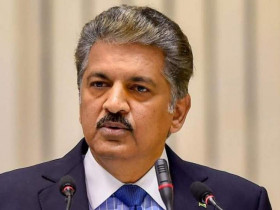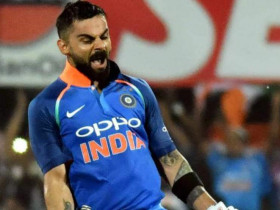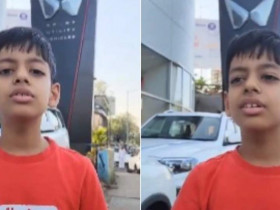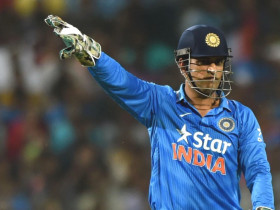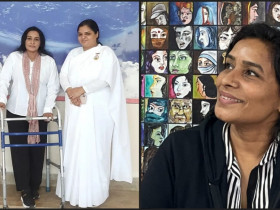In yet another significant milestone for the nation, Indian Space Research Organisation (ISRO) has launched the RISAT-2B Satellite, which means it will enhance the India surveillance capabilities.
ISRO successfully launched the RISAT-2B from the first launch pad of the Satish Dhawan Space Centre in Sriharikota early morning at 5.30 am. The satellite weighing 615 kgs was launched into space onboard the PSLV-C 46. Interestingly, it was the 48th flight of PSLV.
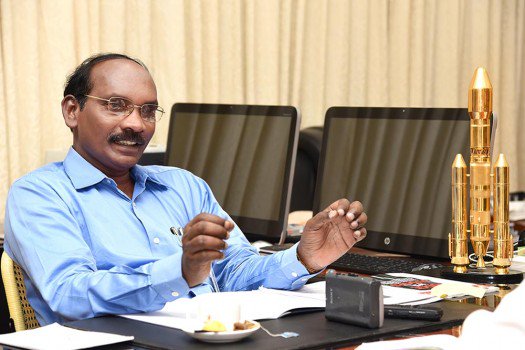
RISAT-2B known as Radar Imaging Satellite-2B is only the third satellite in the series, the first one being RISAT- 2, which was launched in 2009 followed by RISAT-1 in the year 2012.
The mission which has a life phase of five years will be used in the agricultural field, forestry and disaster management support.
RISAT-2B is fully equipped with a synthetic aperture radar that can take pics of the earth during day and night even under cloudy weather conditions.
ISRO Chairman Dr K Sivan also said that the mission is a “very, very important” one for India. “It is an excellent satellite with hi-fi earth observation [capabilities],” he had said.
After Mars Mission, ISRO plans 7 scientific missions including Venus in 2023
Indian Space Research Organisation has been busy sketching route map to script yet another milestone in the times to come. 6 years after courting Mars, India has planned 7 scientific missions in the next 10 years, including Venus mission in 2023.
While the spacecraft to Venus will lift off with more than 20 payloads, the upcoming decade will initiate with interplanetary missions – Xposat in a bid to study cosmic radiation in 2020, Aditya L1 to the Sun in 2021, Mars Orbiter Mission-2 in 2022, Lunar Polar Exploration or Chandrayaan-3 in 2024 and Exoworlds, an intriguing exploration outside the solar system in 2028.
Venus is believed to be earth’s ‘twin sister’ due to its similarities in mass, size, composition, density and gravity.
The mission to the planet will concentrate on studying, observing and examining the surface and its sub-surface, atmospheric chemistry and also the interactions with solar radiation or solar winds.
The mission has got many excited. “We have received great response from across the world, and more than 20 payloads planned,” said Isro chairman K Sivan, who was in Sriharikota on Friday to address 108 school students as part of the Yuvika-2019 Young Scientist Programme.
“Aditya L1 and Xposat missions have been defined. The rest are in planning stages,” Sivan added. He says that Aditya L1, the Sun mission, may play an important part in understanding and predicting climate change on Earth.
The payloads will further study and observe the solar corona. “Corona has an influence on the upper atmosphere and that impacts climate change on earth. If we can understand the solar corona better, we may be able to predict climate change,” he said.
The launch is expected to happen before than planned, as Sivan said the spacecraft will lift off by mid-2020 and then will be placed in a ‘libration orbit’, which is 1.5 million km from Earth.
Well, this is 1% of the distance between the Sun and the Earth, where the gravity of the 2 celestial objects equalises and positioning it in such an orbit enables the spacecraft to circle along with our planet, as a result constantly facing Sun.
In a recent presentation which was made during the 60th session of United Nations Committee on the Peaceful Uses of Outer Space, ISRO scientists said that Xposat will be a five-year project, carrying a polarimeter instrument made by Raman Research Institute to estimate cosmic radiation. The spacecraft will be positioned in a circular 500-700km orbit.
In this year, ISRO’s biggest ever significant mission, Chandrayaan-2 is all set for an epic launch on July. ISRO chairman Dr. Sivan said the spacecraft, including the orbitor, lander and rover, will be flight-ready by the end of this month. “The components are in the final stages of testing. Though we would be ready by end of May, we have to wait till July due to an eclipse,” he said.

